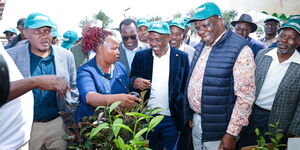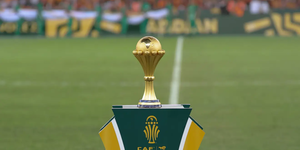Kenya, on Saturday, March 1, nominated respected scholar Prof. Phoebe Okowa for election as a judge at the International Court of Justice (ICJ) in 2026.
Through a statement, Foreign Affairs Principal Secretary Korir Sing’oei revealed Okowa was Kenya’s nominee to the prestigious global body. Okowa, currently a member of the International Law Commission, is set to follow in the footsteps of many before her, including former Prime Minister Raila Odinga, in gunning for a top global position.
“The highly distinguished Prof. Phoebe Okowa, member of the International Law Commission, is Kenya’s nominee for Judge of the International Court of Justice during the election of 2026,” Sing’oei’s statement read.
Okowa, an advocate of the High Court of Kenya, is renowned for her expertise in public international law. In 2021, Okowa was elected to the United Nations International Law Commission for a five-year term starting January 1, 2023, becoming the first African woman to serve as a member.
Okowa carries bags of legal experience, particularly on the international front, and this might have informed the move to nominate her for the prestigious ICJ position. An Oxford PhD graduate, she has acted as counsel and consultant to governments and non-governmental organizations on questions of international law before domestic and international courts, including the ICJ.
The ICJ is the principal judicial organ of the United Nations (UN). Its main role is to settle legal disputes between states and give advisory opinions on legal questions referred to it by UN organs and specialized agencies.
The ICJ consists of 15 judges who serve for a term of nine years. Elections for one-third (five) of the seats are held every three years to ensure continuity.
Judges are not nominated by governments directly but by national groups in the Permanent Court of Arbitration (PCA). Each national group (usually consisting of respected jurists from each country) can nominate up to four candidates, two of whom may be of their own nationality.
The elections take place within the United Nations General Assembly (UNGA) and the United Nations Security Council (UNSC) simultaneously but separately. A candidate must receive an absolute majority of votes in both the UNGA and the UNSC to be elected.
For the absolute majority in UNGA, one must get at least 97 votes (out of 193 member states), while for the absolute majority in UNSC, one must get at least 8 votes (out of 15 members).
Voting is by secret ballot and conducted separately in each body. If the required majority is not reached in the first round, multiple rounds of voting are held until all five positions are filled.
If there is a deadlock (UNGA and UNSC cannot agree on a candidate), a special joint conference of six members (three from each organ) may be formed to resolve the issue.
ICJ’s statutes dictate that judges must be of high moral character and possess recognized competence in international law. Further, the court should have a fair representation of the world’s major legal systems. Another rule is that no two judges can be from the same country.
If elected, Okowa will be the first Kenyan to serve at the ICJ since Judge Abdulqawi Ahmed Yusuf. Though originally from Somalia, Yusuf is a naturalized Kenyan citizen and was elected as a judge of the ICJ in 2009, re-elected in 2018, and even served as the President of the ICJ from 2018 to 2021. He was the first African judge to hold the ICJ presidency since 1994. However, no judge born and raised in Kenya has served on the ICJ so far.
However, her nomination comes as Kenya is just about healing from a painful defeat at the AUC election, where Odinga was the country’s candidate for the position. He was trounced by Djibouti’s Mohamoud Youssouf, with Kenya taught a sobering lesson on foreign policy despite having greater resources and a perceived greater continental standing in the region.
The defeat resulted in a barrage of criticism leveled towards President William Ruto, Prime Cabinet Secretary Musalia Mudavadi, and PS Sing’oei, who were the main drivers of Raila’s campaign across the continent.
To be elected, Okowa will need significant diplomatic backing to secure votes in both UNGA and UNSC, giving the likes of Ruto, Mudavadi, and Sing’oei a herculean task to secure the highly-coveted seat.












